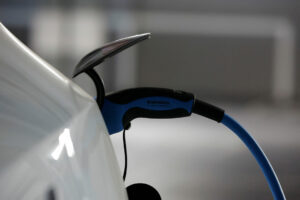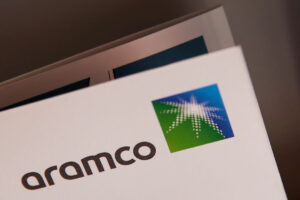CAMPI bullish on EV sales this year

By Justine Irish D. Tabile, Reporter
THE CHAMBER of Automotive Manufacturers of the Philippines, Inc. (CAMPI) is expecting electrified vehicle (EV) sales to track the growth of total industry sales this year.
“The growth of EV sales is expected to track overall industry sales growth driven by increasing consumer adoption, supportive government policies, and entry of more players,” CAMPI President Rommel R. Gutierrez told reporters on Monday.
CAMPI projects total industry sales to reach 500,000 this year. If realized, this would represent a 7% year-on-year increase from the 467,252 units sold in 2024.
According to Mr. Gutierrez, EV sales reached 18,690 units, accounting for around 4% of the total sales last year.
Electrified vehicles refer to those that use electricity including battery electric vehicles, hybrid electric vehicles, and plug-in hybrid electric vehicles.
“EVs (will be) about 4% of the total industry sales by the end of the year,” he said.
If the industry sells 500,000 units this year, a 4% market share would mean sales of 20,000 EVs. If realized, this will be a 7% increase from the estimated 18,690 EV units sold in 2024.
A joint report by CAMPI and the Truck Manufacturers Association (TMA) showed that January car sales grew 10.4% to 37,604 from 34,060 in the same month last year.
In January, EV sales reached 1,600 units, consisting of 146 battery EVs, 1,445 hybrid EVs, and nine plug-in hybrid EVs.
Nissan Philippines, Inc. sold the most battery EVs in January, accounting for 92 units or 63% market share.
It was followed by Toyota Motor Philippines Corp. (TMP), which sold 19 units of battery EVs, and Jetour Auto. Phil., Inc., which sold 12 units.
For the hybrid EV category, TMP had the highest sales last month, accounting for 1,256 units or 86.92% market share.
It was followed by Honda Cars Philippines, Inc., which sold 97 hybrid EVs, and Hyundai Motor Philippines, Inc., which sold 33 units.
In the plug-in hybrid EV category, Coventry Motors Corp. (Jaguar and Land Rover) had the most sales in January, selling five units or 55.56% market share.
This was followed by United Asia Automotive Group, Inc. (Chery), which sold three plug-in hybrid EVs, and SMC Asia Cars Distributors Corp. (BMW), which sold a unit.
Mr. Gutierrez said the lower tariffs on EVs have helped bring down prices and increased sales.
Last year, President Ferdinand R. Marcos, Jr. signed Executive Order (EO) No. 62, which exempted battery EVs, hybrid EVs, plug-in hybrid EVs and other types of EVs from import duties. The zero tariff rate for EVs will be imposed until 2028.
This prompted TMP to reduce the suggested retail prices for the Toyota RAV4, Alphard, and Lexus hybrid EVs in the Philippines.
CAMPI currently has 24 members, but this is expected to increase as the applications of other car brands, including BYD, Subaru, Tesla, and Hongqi, are now pending.
Meanwhile, the Electric Vehicle Association of the Philippines (EVAP) said that it is closely monitoring developments in the Electric Vehicle Industry Development Act (EVIDA), particularly on the Electric Vehicle Incentives Scheme (EVIS).
“EVAP remains committed to working closely with the government and stakeholders to ensure that the law’s provisions are properly implemented to create a robust and sustainable EV ecosystem in the Philippines,” the group said in a statement on Monday.
EVAP said that the EVIS is expected to drive investments and local manufacturing while making EVs more accessible to consumers.
“The EVIDA law has laid the foundation for the growth of the electric vehicle industry in the Philippines,” said EVAP President Edmund A. Araga.
“The proper implementation of EVIS will be a game changer, making EVs more affordable and incentivizing businesses to invest in charging infrastructure and local assembly,” he added.
These incentives include tax breaks, reduced import duties, and other nonfiscal incentives such as priority registration and dedicated parking spaces.
“These measures are expected to stimulate demand and encourage private sector participation in building the necessary infrastructure,” the group added.




